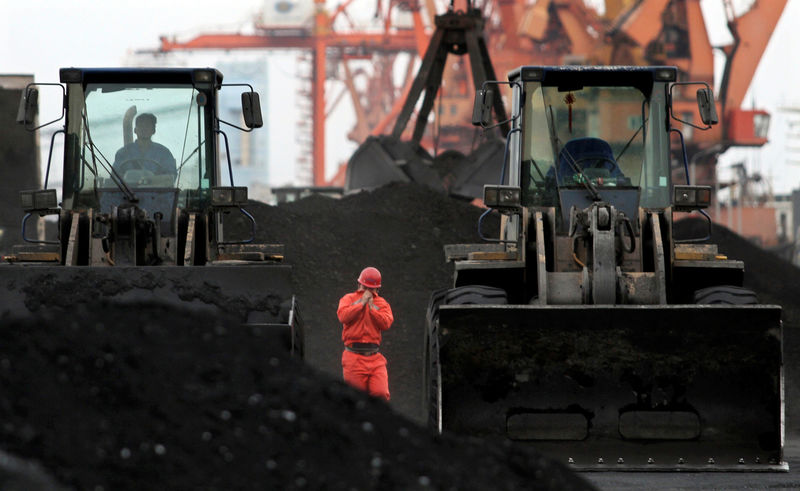By Josephine Mason
BEIJING (Reuters) - China's imports of iron ore and lead concentrate from North Korea plunged to their lowest in more than six years, while coal arrivals fell sharply after the United Nations' latest sanctions against the isolated nation, data showed on Tuesday.
Lead ore and concentrate arrivals totaled just 1,321 tonnes, worth $1.18 million, down 84 percent from a year earlier and the lowest on Reuters records dating back to January 2010, according to data from the General Administration of Customs.
Iron ore shipments plunged 98 percent to 3,035 tonnes, worth about $55,000, the lowest monthly volume on Reuters records from January 2011.
China imported 511,619 tonnes of coal, worth about $44 million, from North Korea, down 71.6 percent from a year earlier.
The data represents the final shipments allowed through customs before the U.N. penalties came into force on Sept. 5, banning Pyongyang from selling coal, iron ore, lead, lead ore and seafood abroad.
Numbers released last week showed trade between the world's second-largest economy and its northern neighbor totaled $412 million, the weakest since April.
The U.N. Security council unanimously imposed new sanctions on North Korea. The sanctions took effect this month, but China enforced the new measures from Aug. 15, amid growing pressure from the United States to rein in Pyongyang's missile program.
Gasoline and diesel shipments remained slow after China National Petroleum Corp (CNPC) suspended sales of gasoline and diesel at the end of June to North Korea over concerns CNPC would not get paid for its goods. The measures are still in place, sources familiar with the matter say.

Gasoline exports were the lowest since January 2016, and diesel sales were the smallest since May.